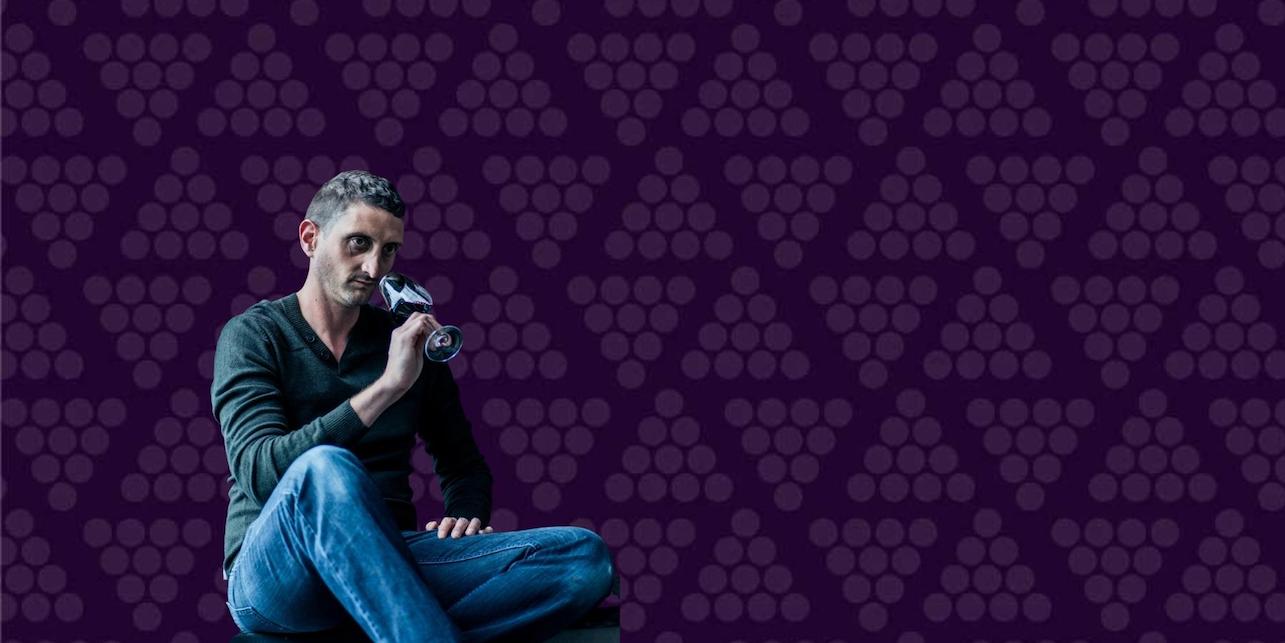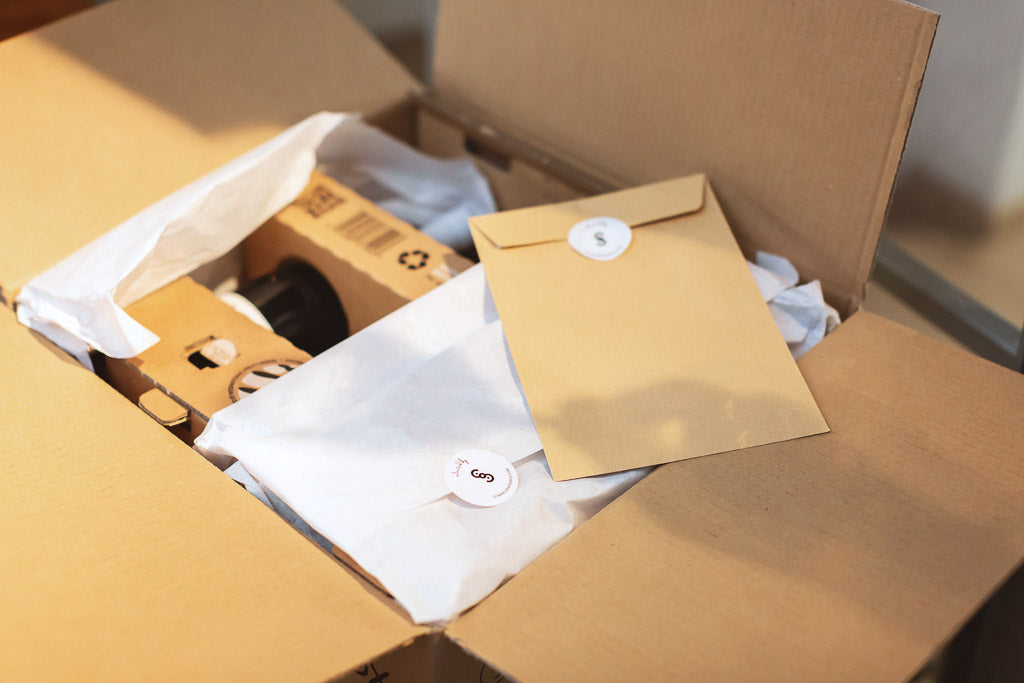French wines are undoubtedly among the most famous and popular in the world, and French wine culture can also be intimidating in its richness. We have the pleasure of talking about it with Julien Miquel: producer, oenologist, consultant, blogger, founder of Social Vignerons and one of the most important wine influencers in the world.
Julien Miquel's 5 tips for understanding French wine.
1. Julien, you are truly a first-time influencer. But let's not forget it all started with oenology and wine production. How did this story begin? You grew up in the south west of France, immersed in wine culture, but there must be more to a passion and career of this magnitude…
I encountered wine almost by chance , and the passion that arose from it was truly unexpected, so I literally threw myself into the sector!
It's actually a simple story. As a boy I was very interested in studying biology: I loved studying nature, plants, microorganisms, animals and so on... I was taking a lesson in molecular biology and microbiology when I understood for the first time that wine could be my career. career. Of course in France, as in Italy, wine is an important sector, with many opportunities. So during my summer break from university I did an internship in the wine region near Toulouse in the South of France.
And I fell in love with this profession. In making wine I found everything I was looking for in life : being in contact with nature, in the open air, the complexity of science combined with profound culture, feeling, taste.
And then I was amazed by how cultured and at the same time simple the people in the industry were. There I thought: wine and making wine will be my life . I was about to turn 20.
The deeper I went, learning, the more the passion grew. It has never left me since: it's a story that has continued for 21 years and I can say that half of my life has been dedicated to wine!
2. In Italy we are aware that our "French cousins" are very good at promoting their wines and doing it in the best possible way. But is there any territory for you that could be even more well-known and appreciated?
I think that our "transalpine cousins" as we say in France are also very good at promoting their wines, probably in a very different way from ours.
In any case, yes.
The Loire Valley is not yet appreciated as it should be, probably because it is a complex territory, made up of many different areas and production styles. It is not an area that can be immediately categorised, since great reds, whites, sparkling wines, sweet wines are produced... but the styles and quality are not always perfectly homogeneous.
The Languedoc-Roussillon region is also underestimated. In the past, it was the region that produced the most in the world, with wines that tended to be simple and cheap. This is why the image of a bulk wine area that it had before the '80s and '90s has remained for a long time. Since then, huge areas of vineyards have been eliminated, because the European Union has subsidized the reduction of the vineyard area to combat excessive wine production in Europe. The result was the reduction of vineyards on the plains, while only the best sites remained, those located at altitude, often with their old vines.
This is a sunny, dry area, with a Mediterranean climate, and many winemakers produce organically. It is quite hot but there are also cooler areas, due to the breezes coming from the Mediterranean or the altitude. So, many wines from the area combine coming from old vines – in simply fantastic terroirs – with generous sunshine, cool breezes and organic or biodynamic practices. The perfect recipe for producing wines with character, balanced and authentic.
3. Your favorite wine?
Since I studied in Bordeaux , in the best oenology university in the area, I had the opportunity to work at the famous and highly renowned Château Margaux . I was very young and still had a long way to go but the opportunity to gain experience and learn the art of making wine within the walls of one of the best wineries in the world was the turning point in my life .
Driving to the estate and entering this history-making site every morning had something magical. I was only 23 and I learned a lot. It goes without saying: Chateau Margaux wines are spectacular, elegant, prone to aging. I was lucky to be able to taste them and understand them at such an early stage in my career: they remained in my heart and are still my most cherished wines today.
- Read also: The best French wines
4. You were among the first experts to start talking in a simple way about a sophisticated product like wine. You love to say that wine should not intimidate anyone and you have launched a YouTube channel to share the culture of wine, also addressing non-experts. And we really like this approach. Your 5 suggestions for an enthusiast who wants to understand French wine more?
Interesting exercise! OK, here are my suggestions on how to select 5 affordable wines that will allow a winelover to understand the key styles of French wine .
1️⃣ First, select a Riesling Alsace Grand Cru , preferably from volcanic (Rangen) or granitic (Schlossberg) soil. Even both if possible. Understanding French wines means understanding that there is an extraordinary variety of styles and that one of its best aspects is the strong connection to terroir. Alsatian Riesling is mineral thanks to its rare terroir (or rather its different terroirs), especially when it grows on volcanic or granitic soil, but also generous and powerful because it comes from one of the warmest regions of the country. And then the art of making wine in Alsace is absolutely exceptional.
2️⃣ Second: take a good Pinot Noir from Burgundy . You can't say you know French wine if you don't know what a Burgundy red is like. Good Burgundy wines are very expensive, if you really want to feel the terroir: you should at least go for the Premier Cru. For a more affordable option, you can take a Beaune Premier Cru, perhaps the most accessible option - in terms of price - at this level. Alternatively: Savigny-lès-Beaune or Mercurey.
3️⃣ Third: you need to try a good Bordeaux blend red. I recommend a Cru Bourgeois or other mid-range Chateau from the Médoc or Graves, which will be very well representative of the Cabernet Sauvignon-Merlot blend from a gravelly/sandy soil. I would aim for a bottle around €25-30 from a good vintage - like 2015-2016 - to have an excellent example. Most Bordeaux in that price range are excellent and representative of the iconic Bordeaux style, made in the spirit of the most typical local tradition and wisdom of wine making. You don't need to spend a fortune to fully understand this type of style.
4️⃣ and 5️⃣ And finally, to understand the importance of terroir and tradition in France. Compare a red made in the Rhône Valley of the North, compared to one from the South. The pure Syrah from the North , the GSM or GSMC blends from the South (Grenache, Syrah, Carignan, Mourvèdre). For affordable options, and to avoid spending your entire budget on expensive Châteauneuf-du-Pape and top crus from the North like Hermitage or Côte Rôtie, I recommend Vacqueyras or Gigondas from the South. They are very similar in style to Châteauneuf, well representative of the tradition and terroir of the Southern Rhône for a decidedly lower cost. For the North look for a mid-range Saint-Joseph if possible, or a good Tain-l'Hermitage.
- Read also: French wines explained simply
By lining up these 5 wines you get a precise idea of the variety that French wine has to offer . You can understand the individual terroirs , the varieties of the vines, the importance of the blend or of making pure wine.
And if you want to go a little deeper and experiment with other super classics of the French style, you need to take a good bottle of Chardonnay from Burgundy , an Extra brut Champagne , a red Beaujolais Cru , a red Languedoc (for example Faugères) and finally a Cabernet Franc from the Loire (Chinon or Bourgeuil).
Health or… santé!
To receive a personalized selection of wines, discover the territorial selections signed by Sommelier Wine Box
CLICK HERE




